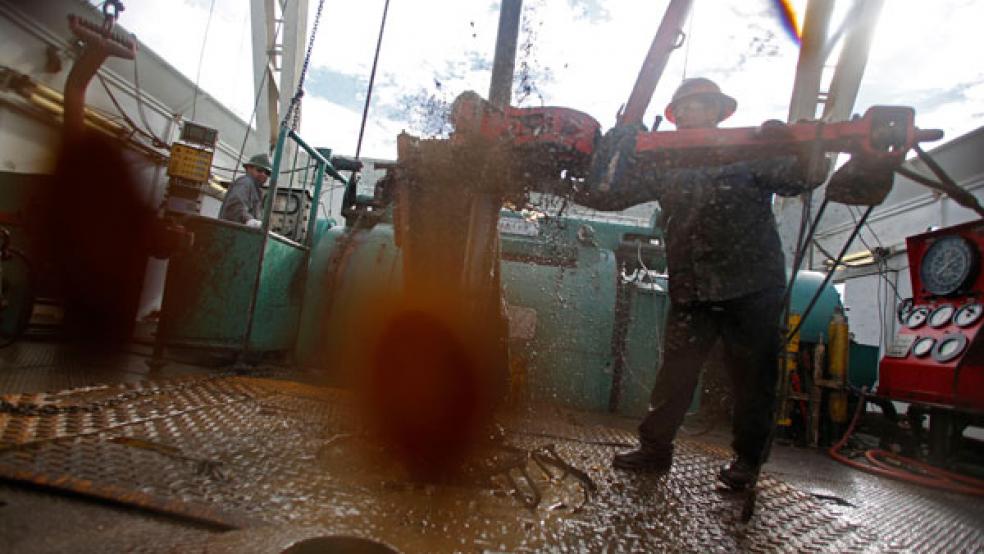In early 2013, Derek MacDonald, a skinny 28-year-old with glasses, was living in the small town of Smith Center, Kansas, and taking care of his sick grandfather. He looked for steady work for over a year, but found nothing more than odd construction jobs. He also has a DUI on his record, which he believes dissuaded employers from hiring him. “I only had a couple jobs the whole year,” he says.
Broke and unsure of what to do next, he packed up two duffle bags, a sleeping bag and a tarp, and bought a one-way bus ticket to Williston, North Dakota – a place with one of the lowest unemployment rates in the country, at 0.9 percent. The media has dubbed it “the town the recession forgot.” “I found a job within the first hour of being here,” says MacDonald.
Located just south of the Canadian border, it’s almost hard not to find a job in Williston. Advancements in hydraulic fracturing have helped the region experience one of the largest oil booms the U.S. has ever seen. North Dakota has seen a 600 percent increase in production in recent years. The state currently produces around 27 million barrels of oil every month, and has risen from the ninth-highest oil producing state, to the second, trailing only Texas.
With oil come jobs. Williston and its surrounding areas have generated over 75,000 new jobs, and average annual wages have more than tripled in the past decade, going from $24,841 in 2002 to $78,364 today. For those in the oil field, who typically work long overtime hours, the average wage in the state is $112,462. The state now has 22,000 more jobs than people looking for work.
RELATED: THE 10 HIGHEST-PAYING JOBS IN THE NORTH DAKOTA OIL BOOM
Nearly every business in town has “Help Wanted” signs and has raised wages to attract employees. McDonald’s started offering $300 signing bonuses, and the hourly pay for a cashier position at Walmart starts at $17.50, twice as much as the same position in other locations. And if a jobseeker can snag a job in the oil industry, they can make over $100,000 with no college degree.
The problem is, as thousands of workers from all over the country have showed up, housing construction has not kept pace. The lack of supply has caused landlords to inflate rents, and a modest two-bedroom that used to go for $500 a month before the boom shot up to $2,500 a month. Those who can afford the rent usually have to add their name to a waiting list, and newcomers often have to live in campers, cars or tents while they search for work. Some jobs offer housing in “man camps,” but not all.
“Do your research and know what you’re going to do for housing before you come out here,” says Cindy Sanford, the manager of Job Service North Dakota, an employment agency in Williston. “Sleeping in your car during the winter doesn’t work. It gets cold here.” In addition, it can take two to three weeks for companies to process an application, Sanford notes.

Credit: Job Service North Dakota
Though MacDonald found a construction job for $18 an hour his first day in town, housing has been much more difficult. He slept on the floor of a local church when he first arrived, searching for housing in the local newspaper when he had time. After two weeks, he found a place, but it was $600 a month to share a room in an old plantation house with 25 other men.
Sanford suggests jobseekers register at the Job Service North Dakota site, which currently lists 23,000 open positions. Jobseekers can upload up to seven different resumes. There are currently 2,605 job openings in the region, and not a lot of competition – Job Service North Dakota receives only 0.4 resumes per job opening. The jobs that are most in demand, according to Sanford, are truck drivers, electricians, heavy equipment operators and diesel mechanics. In addition, “we’re in dire need of chefs and cooks,” she says. Chefs can make between $40,000 to $85,000 a year, depending on their skill level, Sanford says.
For most private sector jobs, expect to see larger paychecks. The average weekly wage (not including overtime pay) for an oil and gas extraction job in the area is $1,858 (or $96,616 year); $1,684 for real estate jobs ($87,568 a year); $1,458 ($75,816 a year) for transportation and warehousing, and $1,341 for construction ($69,732 a year), according to Job Service North Dakota.
RELATED: 11 SHOCKING FACTS ABOUT THE NORTH DAKOTA OIL BOOM
If an oil rig job is what you want, competition has intensified. While five years ago companies often hired workers for their entry-level positions (typically called a rig hand or roustabout) with little to no experience, today, it takes at least six months of experience and a connection to break in, according to Sanford. “An entry-level roustabout job is not as easy to get,” she says. “Legally, [rigs] are only allowed to have one new person per team.”
Instead of searching for that elusive drilling job, Sanford suggests aiming for production industry positions, including maintenance, driving and waste disposal, which are expected to be more stable than drilling. According to the North Dakota Department of Minerals, each drilling rig creates 120 jobs, and of those jobs, 36.5 percent of those jobs are trucking related. In addition to hauling oil, a fracking operation requires 2,000 truck trips of water in its first year of operation. “Driving is huge,” says Sanford, but jobseekers must have a clean driving record, and she recommends obtaining a motor vehicle report from your state before applying.
MacDonald believes his efforts have paid off. He recently found a new construction job that pays for his housing and travel costs. He works about 40 hours a week building homes, and brings in $100 to $200 a day. “You have to be on your game, and you have to be smart about it. It’s too damn cold to live on the streets right now,” he says.
Sanford says those who will be most successful in oil country come for the long-term. “Companies are looking for people who want to make a career change and are here to stay,” she says. “That person is going to go to the top of the list. If you want to make a huge change, there’s tons of opportunity.”
Blaire Briody is a freelance writer currently working on a book about North Dakota’s oil boom. You can follow the project on Facebook or through the blog.





